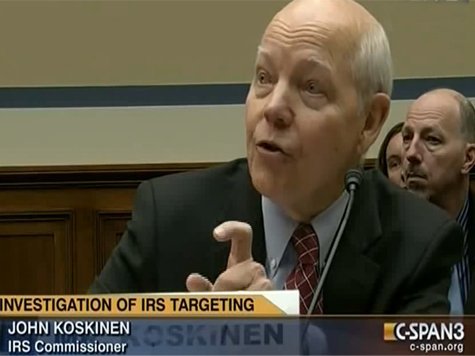Ben Swann – While the White House has defended the IRS in its explanation of former IRS official Lois Lerner’s lost emails, Rep. Jason Chaffetz (R-UT) offered a reminder that IRS Commissioner John Koskinen testified in March 2014 that IRS employee emails had been stored on servers.
In the video, Koskinen testified that his own emails were not all on his computer, but “stored somewhere”.
“I mean, that’s one of the brilliance of the email system, is you go in, you check the set box, the inbox, and you suddenly have all the emails, correct?” Chaffetz asked Koskinen.
“Right, they get taken off and stored in servers,” Koskinen replied. He then declared that Lerner’s emails could be found, although he said he had no idea how much time the search would take when pressed by Chaffetz.
Email exchanges from 2011 show that Lerner’s computer hard drive did crash followed by unsuccessful attempts to recover it and Lerner summarizing, “sometimes stuff just happens.”
Since the IRS revealed the loss of Lerner’s emails, many Republicans, including Darrell Issa (R-CA) and Dave Camp (R-MI), have expressed doubt that Lerner’s emails could be easily destroyed. The IRS explained that there was a limit to how many emails IRS employees could store on servers.
In 2011, the limit was about 1,800 emails and “each employee got to choose which emails to keep and which to archive in the hard drive on their computer,” according to The Hill. Hard copies were supposed to be made of “official documents,” but it is unclear who was responsible for making that determination.
On Monday, incoming White House spokesman Josh Earnest disregarded the increased skepticism from Republicans and the American public over the lost emails. “You’ve never heard of a computer crashing before?” Earnest asked reporters. “I think it’s entirely reasonable, because it’s the truth and it’s a fact, and speculation otherwise I think is indicative of the kinds of conspiracies that are propagated around this story. And they’re propagated in a way that has left people with a very mistaken impression about what exactly occurred,” Earnest said.
Koskinen was subpoenaed to appear before the Oversight Committee on June 23rd. “Congress passed the Federal Records Act (FRA) to preserve key documents—such as those that were stored on Lerner’s hard drive—for production to congressional investigators and other stakeholders, including historians and FOIA requesters. The FRA requires agencies to make and preserve records of agency decisions, policies, and essential transactions, and to take steps to safeguard against the loss of agency records,” wrote Issa, who serves as the chairman for the House Oversight and Government Reform Committee.

